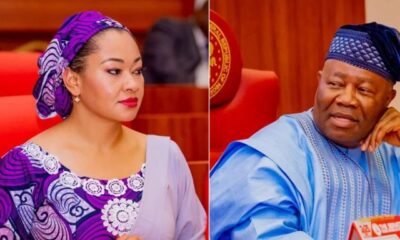Eleven states are taking steps to commence ranching as a way to address the age-long violent clashes between herders and farmers, which have claimed several lives.
While some states have allocated lands for ranching, many others have pledged lands, and a few are developing policies that will guide the initiative as a viable business venture.
The states ready to commence ranching are Lagos, Plateau, Ondo, Zamfara, Bauchi, Delta, Niger, Kano, Jigawa, Nasarawa and Anambra.
The development comes against the surge in killings in Benue and Plateau communities linked to armed herders.
Last week, over 200 persons were murdered in Yelewata, Benue State, by armed assailants.
President Bola Tinubu attributed the incident to land-grabbing and vowed to go after the perpetrators.
He also established a committee of elders, comprising former governors and two prominent traditional rulers in the state, to promote peace in the state.
He directed the Inspector-General of Police, Kayode Egbetokun, and the Chief of Defence Staff, Gen Christopher Musa, to immediately arrest the alleged killer herders.
The Permanent Secretary at the Lagos State Ministry of Agriculture and Food Systems, Emmanuel Audu, said the state had been developing its ranching system and was open to collaboration with the Federal Government and other interested stakeholders.
“That (collaboration with FG) is open for discussion,” he said. “We are already developing our own ranch. We are already implementing the project, and we are at the development stage. We have the land and we are putting infrastructure (in place), and we are going to allot to private sector organisations which can start a cattle ranch.”
The project has already started over three years ago, so we are already working on that ranching system. If there is a need for any collaboration, yes, we welcome it.”
He noted that the state had a law that prohibited open grazing in Lagos.
“We have an anti-open grazing law, we don’t support open grazing. We have a law already passed that bans open grazing, so it’s an offence to have cattle moving in the state.”
Some Lagos residents also rejected open grazing, maintaining that ranching was the way to go.
Emmanuel Sanusi, who lives in Surulere, told The Punch, “Ranching is better because it is more sustainable, secure, and economically productive. Unlike open grazing, which often leads to conflicts between herders and farmers and even pedestrians, ranching confines livestock to a controlled environment, reducing clashes and improving community safety.”
Another resident and political activist, Ayoyinka Oni, said, “I do not support open grazing in any state, especially Lagos. If cattle owners want open grazing, they should buy a large portion of land that has enough grass that can feed their cows forever.”
Another resident in the Ifako Ijaiye area of Lagos, Adebayo Adedeji, added, “I feel neither open grazing nor ranching is feasible in Lagos due to how the state is structured as the hub of commercial activities.”
The Anambra State Commissioner for Information, Dr Law Mefor, expressed the state’s disposition to ranching, saying Governor Chukwuma Soludo was working closely with the FG on the issue.
He said, “There is an anti-open grazing law in Anambra State enacted during the past administration of Willie Obiano. It hasn’t been repealed and therefore, is still in force. The law presupposes the state’s disposition to control cattle grazing, including ranching.
“Don’t forget, Soludo is a member of President Bola Tinubu’s economic team. So, you can count on Anambra State to contribute land for ranching once other states start doing so.”
Giving an insight into the Anambra State open grazing law enacted in 2021, the commissioner said it aimed at regulating livestock movement, as well as promote ranching within the state.
But some residents kicked against the planned ranching in the state, insisting that such a move aimed to promote the personal business of some sections of the country.
Speaking on the development, a rights activist and lawyer, Dr Okey Ifeanyi, said, “What we are talking here is a personal business and therefore, asking states to contribute lands for ranching is a move aimed at promoting the personal businesses of some people.”
An Onitsha resident, Chief Osita Odinaka, stated, “Although ranching is far better than open grazing, but then, since it’s a personal business, I feel it is a wrong move for the Federal Government to ask states to donate lands for ranching.”
The Ondo State Government said even though it had not entered into partnership with the FG on ranching, it had been running ranches in the state.
Senior Special Assistant to Governor Lucky Aiyedatiwa on Agri-business, Akinsola Wemimo, said the FG had not requested for land from the state, which banned open grazing in 2020 following the passage of the anti-open grazing law by the administration of late former Governor Rotimi Akeredolu.
Wemimo stated, “We have two ranches, one belongs to O’dua (Investment Company) and one belongs to the state. Those are the ranches we are dealing with
“We didn’t receive any money from the Federal Government for ranching, and it has not requested our land.”
The governor’s aide, however, noted that the state was open to any investor who wanted to invest in ranching in the state.
Credit: The Punch

 BIG STORY3 days ago
BIG STORY3 days ago
 BIG STORY4 days ago
BIG STORY4 days ago
 BIG STORY2 days ago
BIG STORY2 days ago
 BIG STORY3 days ago
BIG STORY3 days ago
 BIG STORY4 days ago
BIG STORY4 days ago
 BIG STORY4 days ago
BIG STORY4 days ago
 BIG STORY2 days ago
BIG STORY2 days ago
 BIG STORY4 days ago
BIG STORY4 days ago
























